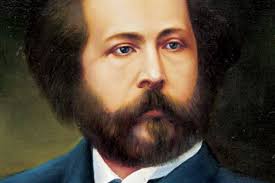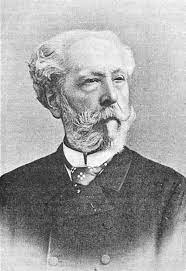Édouard Lalo, a prominent figure in the annals of classical music, was born on January 27, 1823, in Lille, France. His musical journey began at a young age, displaying a natural talent for the violin. However, his path to becoming one of France’s most celebrated composers was not without its challenges.
Lalo’s early years were marked by financial struggles, which forced him to seek employment as a violinist in various orchestras. Despite these hardships, his passion for music never waned. He eventually found success as a composer, thanks to his dedication and perseverance.
In 1855, Lalo achieved his first major breakthrough with the premiere of his Symphonie Espagnole for violin and orchestra. This work, inspired by Spanish folk melodies, received widespread acclaim and firmly established Lalo as a composer of considerable talent.
Throughout his career, Lalo continued to produce a diverse body of work, including symphonies, chamber music, and operas. His compositions are characterized by their rich harmonies, lyrical melodies, and masterful orchestration.
One of Lalo’s most renowned works is his opera “Le Roi d’Ys,” which premiered in 1888 to great acclaim. Set in medieval Brittany, the opera tells the tragic tale of love and betrayal against the backdrop of a legendary sunken city. Its lush orchestration and powerful drama solidified Lalo’s reputation as a leading opera composer of his time.
Despite his success, Lalo remained modest and dedicated to his craft. He continued to compose until his death on April 22, 1892, leaving behind a legacy of remarkable music that continues to be performed and admired to this day. Édouard Lalo’s contributions to the world of classical music endure as a testament to his talent and enduring passion for the art form.


Comments are closed